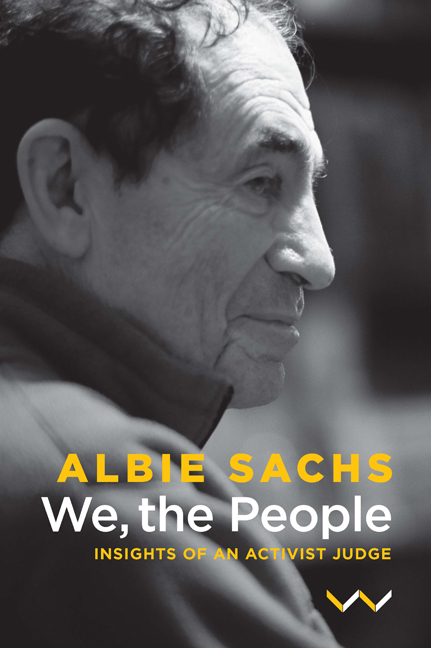Book contents
- Frontmatter
- Acknowledgements
- Miscellaneous Frontmatter
- Contents
- Figures
- Introduction
- 1 In the Beginning
- 2 Hope and Caution in Exile
- 3 We Have to Mistrust Ourselves
- 4 Inventing A Constitution
- 5 With Clean Hands and Without Secrets
- 6 Reconciling the Past and the Future
- 7 Living Constitutional Law and Ubuntu
- 8 More than Crumbs from the Table: Enforcing Social and Economic Rights
- 9 Struggle Continues
- 10 Are the Beautiful People Born?
- Cases Cited
- Sources
- Index
6 - Reconciling the Past and the Future
Published online by Cambridge University Press: 21 April 2018
- Frontmatter
- Acknowledgements
- Miscellaneous Frontmatter
- Contents
- Figures
- Introduction
- 1 In the Beginning
- 2 Hope and Caution in Exile
- 3 We Have to Mistrust Ourselves
- 4 Inventing A Constitution
- 5 With Clean Hands and Without Secrets
- 6 Reconciling the Past and the Future
- 7 Living Constitutional Law and Ubuntu
- 8 More than Crumbs from the Table: Enforcing Social and Economic Rights
- 9 Struggle Continues
- 10 Are the Beautiful People Born?
- Cases Cited
- Sources
- Index
Summary
I woke up this morning feeling extremely queasy and everything around me seemed a bit unreal. I would reach for something and just as I was about to seize it, it seemed to disappear.
Naturally I was quite alarmed and I went to the doctor and the doctor looked at me and said:
‘You're from South Africa, aren't you?’
And I said, ‘Yes’.
He said, ‘I can tell from your accent, and I can tell from just the way you're relating these symptoms to me; immediately I know what your ailment is, it's endemic in South Africa, I'm sad to say it's incurable, but it can be managed’.
And I said, ‘Well what is it?’
And he said, ‘It's archive fever’.
‘I've had many patients from South Africa with that ailment’, he continued, ‘and I'm not surprised, because people entering the realm of archives feel they're entering a realm of security where facts are facts, where things are collected and classified in a completely neutral way, where there's no hierarchy of importance, and chunks – nuggets – of social reality from one period are stored forever, for examination, certainly for as long as the materials last. And instead of feeling more secure as a result of entering this realm, they find themselves totally displaced. To begin with, the documents are as partial as you can get. They were documents that were collected by a ruling minority, confident and assured in relation to its right to rule, and not only to rule but to the right to record their own history, the story of the world in which they functioned, from their own point of view, which they saw as the natural point of view’.
‘As for the majority of the population, they weren't agents of history; they were subjects of anthropology. They didn't live in time, but existed as units of unchanging social structures. And if any information at all was collected from what were called the native people, it was assembled not with the view to understanding their society as it understood itself, but with a view to more effective administration through control and subordination. And so this apparently neutral collection of documents called the archive immediately appears to be as partial as you can get.
- Type
- Chapter
- Information
- We, the PeopleInsights of an Activist Judge, pp. 85 - 144Publisher: Wits University PressPrint publication year: 2016



